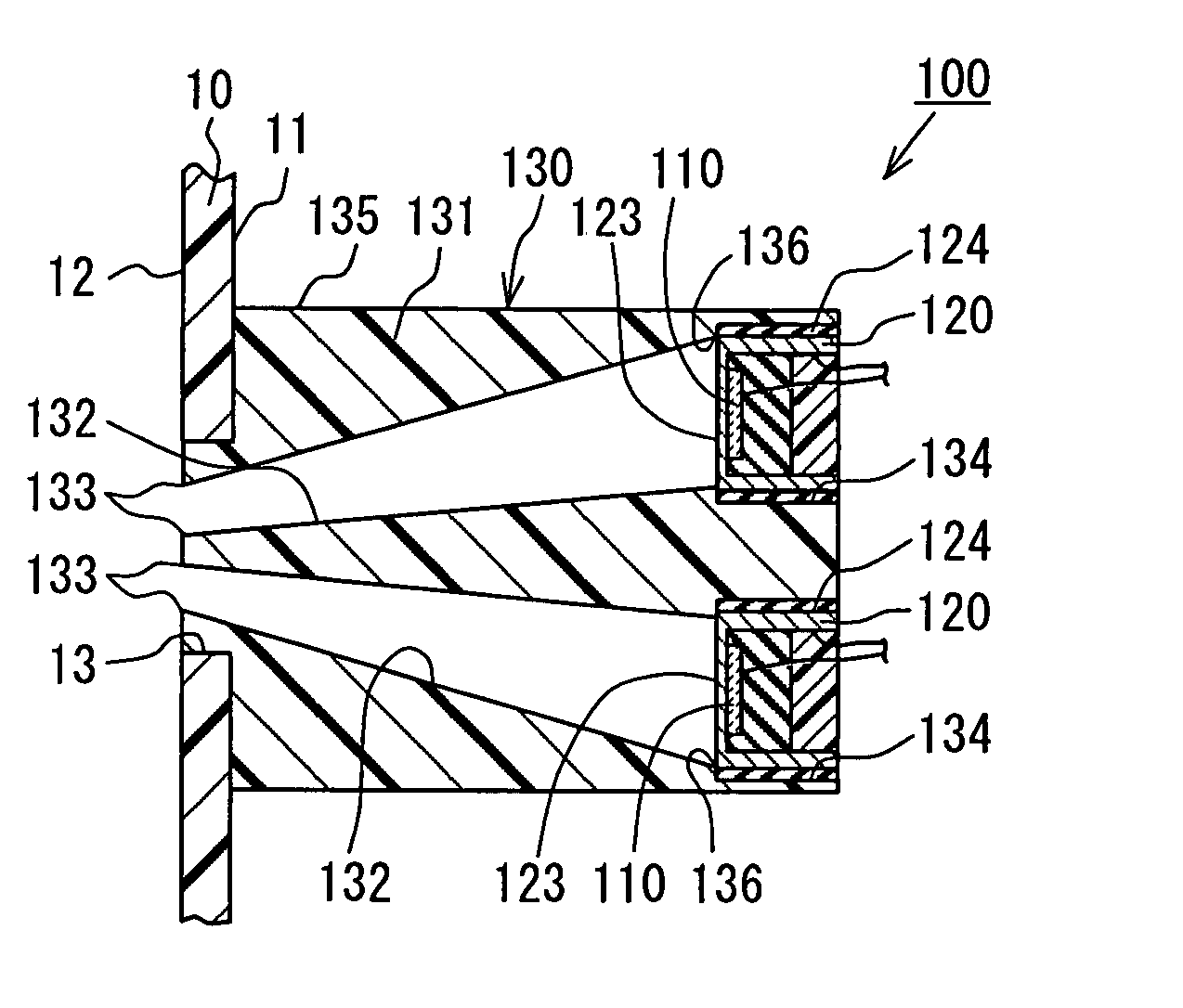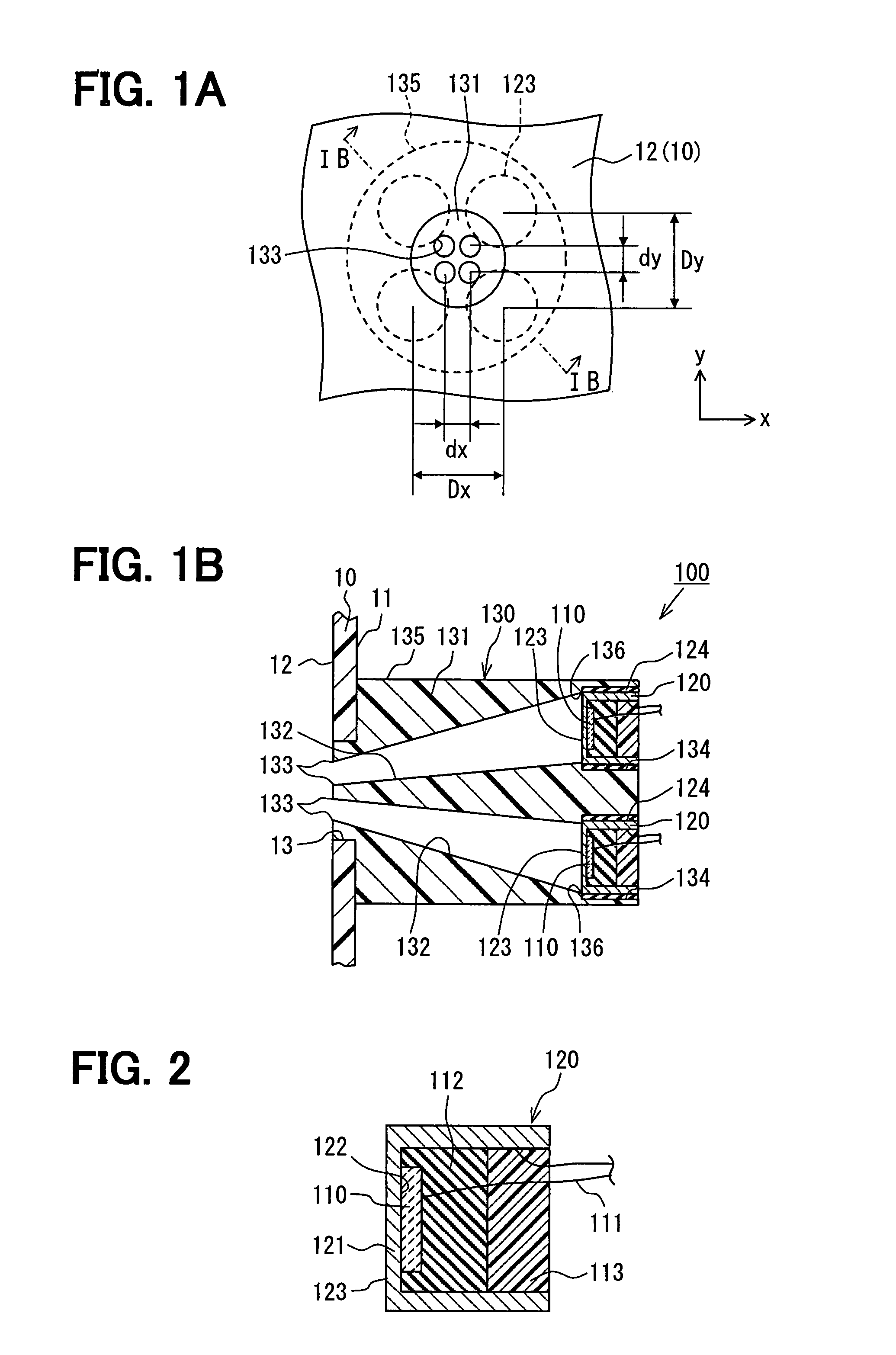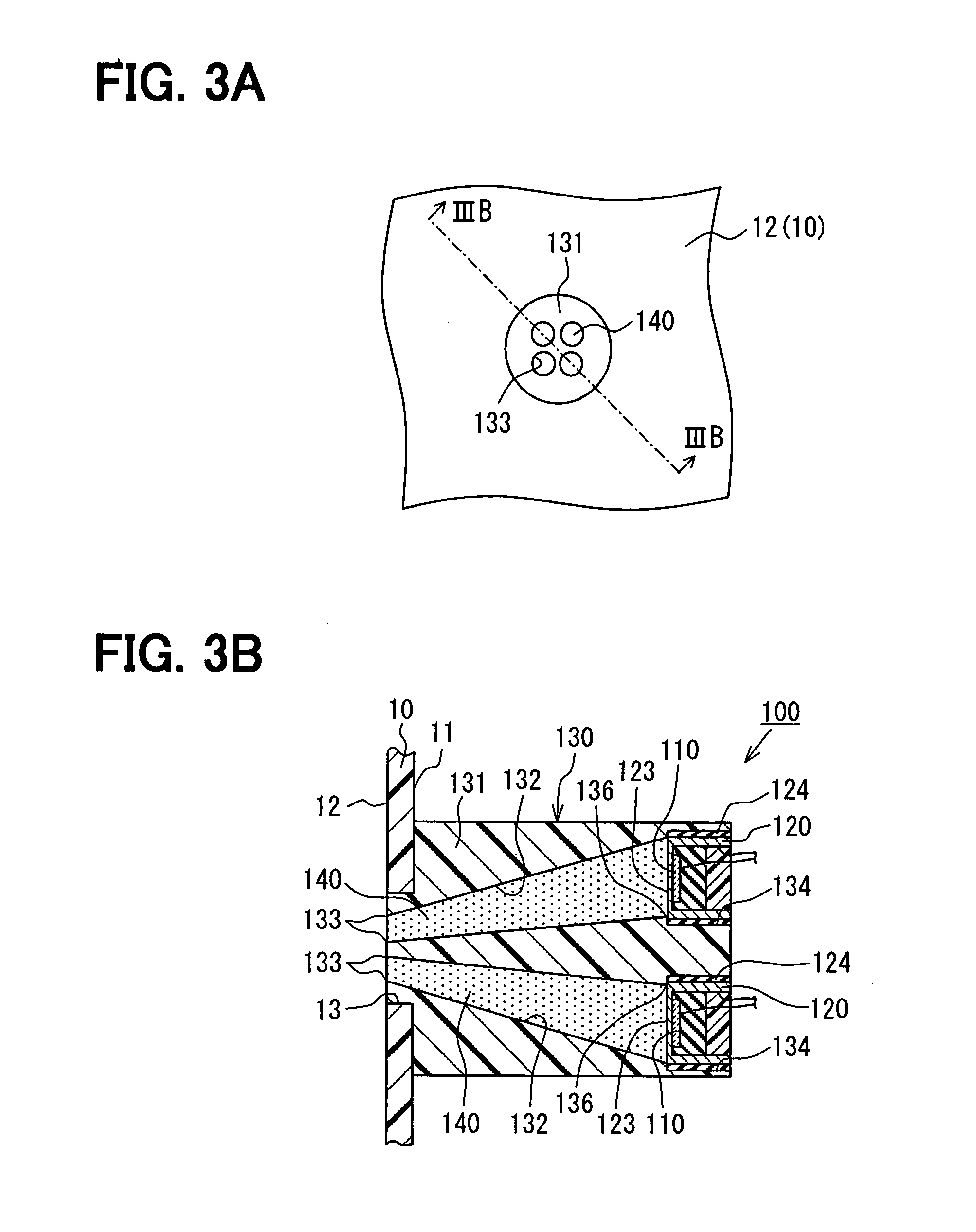Ultrasonic sensor and obstacle detection device
a technology of ultrasonic sensor and obstacle detection, which is applied in the direction of mechanical vibration separation, instruments, and using reradiation, etc., can solve the problems of reducing reducing the rigidity of the vibrating plate, so as to improve the detection area of objects, improve the design of sensors, and avoid the effect of reducing impact strength
- Summary
- Abstract
- Description
- Claims
- Application Information
AI Technical Summary
Benefits of technology
Problems solved by technology
Method used
Image
Examples
first embodiment
[0044]FIG. 1A and FIG. 1B are diagrams for schematically showing a structure of an ultrasonic sensor according to a first embodiment: FIG. 1A is a plan view of the ultrasonic sensor; and FIG. 1B is a sectional view of the ultrasonic sensor, taken along a line IB-IB of FIG. 1A. FIG. 2 is a sectional view for representing an enlarged peripheral portion of a housing shown in FIG. 1B. It should be understood that FIG. 1A and FIG. 1B represent such a condition that the ultrasonic sensor has been mounted on a mounting portion of a moving object, and FIG. 1A is a plan view of the ultrasonic sensor, as viewed from an exterior portion of the moving object.
[0045]In the first embodiment, a description is made of an example in which the ultrasonic sensor and an obstruction detecting apparatus containing this ultrasonic sensor are employed in a vehicle functioning as the moving object. Concretely speaking, as shown in FIG. 1A and FIG. 1B, an ultrasonic sensor 100 has been mounted on, for example...
second embodiment
[0068]FIG. 3A and FIG. 3B are diagrams for schematically showing a structure of an ultrasonic sensor 100 according to the second embodiment: FIG. 3A is a plan view of the ultrasonic sensor 100; and FIG. 3B is a sectional view of the ultrasonic sensor 100, taken along a line IIIB-IIIB of FIG. 3A. It should be understood that FIG. 3A and FIG. 3B correspond to FIG. 1A and FIG. 1B respectively.
[0069]Since the ultrasonic sensor 100 and an obstruction detecting apparatus containing this ultrasonic sensor 100, according to the second embodiment, have many common technical ideas with respect to the ultrasonic sensor 100 and the obstruction detecting apparatus containing the ultrasonic sensor 100, which are shown in the first embodiment, a detailed description as to these common technical ideas is omitted, and different technical ideas will be mainly described in the below-mentioned specification.
[0070]In the first embodiment, the below-mentioned example has been disclosed: That is, the same...
third embodiment
[0074]FIG. 4A and FIG. 4B are diagrams for schematically showing a structure of an ultrasonic sensor 100 according to the third embodiment: FIG. 4A is a plan view of the ultrasonic sensor 100; and FIG. 4B is a sectional view of the ultrasonic sensor 100, taken along a line IVB-IVB of FIG. 4A. It should be understood that FIG. 4A and FIG. 4B correspond to FIG. 1A and FIG. 1B respectively.
[0075]Since the ultrasonic sensor 100 and an obstruction detecting apparatus containing this ultrasonic sensor 100, according to the third embodiment, have many common technical ideas with respect to the ultrasonic sensor 100 and the obstruction detecting apparatus containing the ultrasonic sensor 100, which are shown in the first embodiment, a detailed description as to these common technical ideas is omitted, and different technical ideas will be mainly described in the below-mentioned specification.
[0076]In the first embodiment, the below-mentioned example has been disclosed: That is, while the pl...
PUM
 Login to View More
Login to View More Abstract
Description
Claims
Application Information
 Login to View More
Login to View More - R&D
- Intellectual Property
- Life Sciences
- Materials
- Tech Scout
- Unparalleled Data Quality
- Higher Quality Content
- 60% Fewer Hallucinations
Browse by: Latest US Patents, China's latest patents, Technical Efficacy Thesaurus, Application Domain, Technology Topic, Popular Technical Reports.
© 2025 PatSnap. All rights reserved.Legal|Privacy policy|Modern Slavery Act Transparency Statement|Sitemap|About US| Contact US: help@patsnap.com



